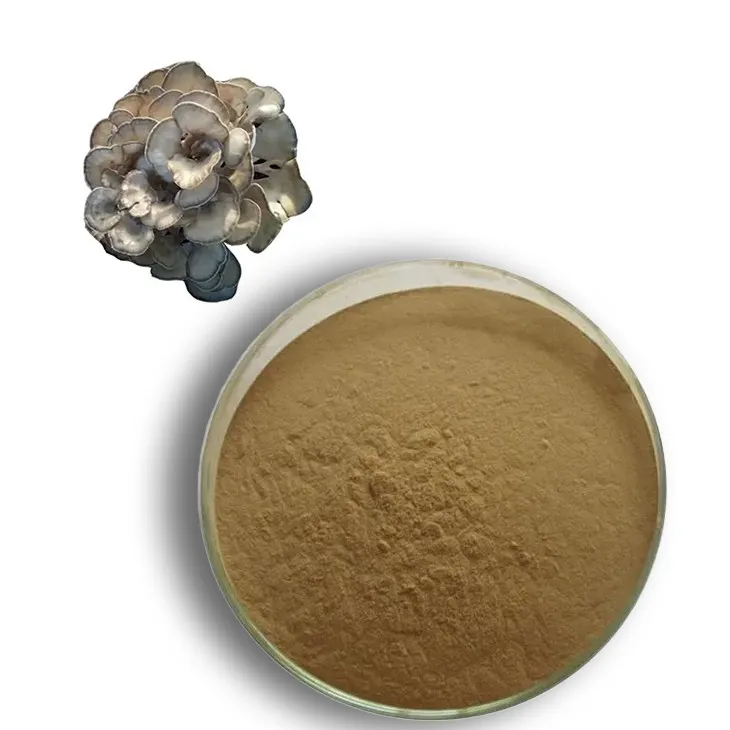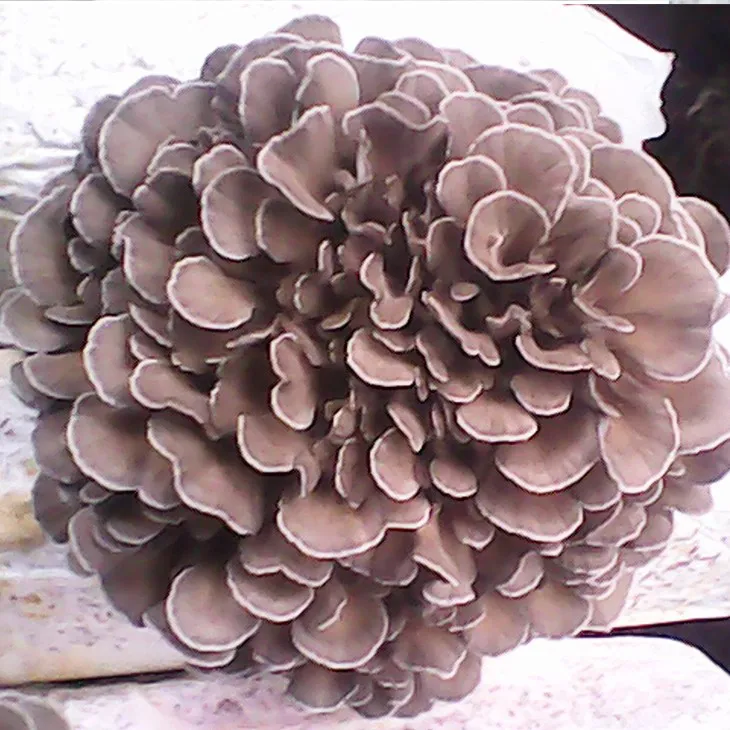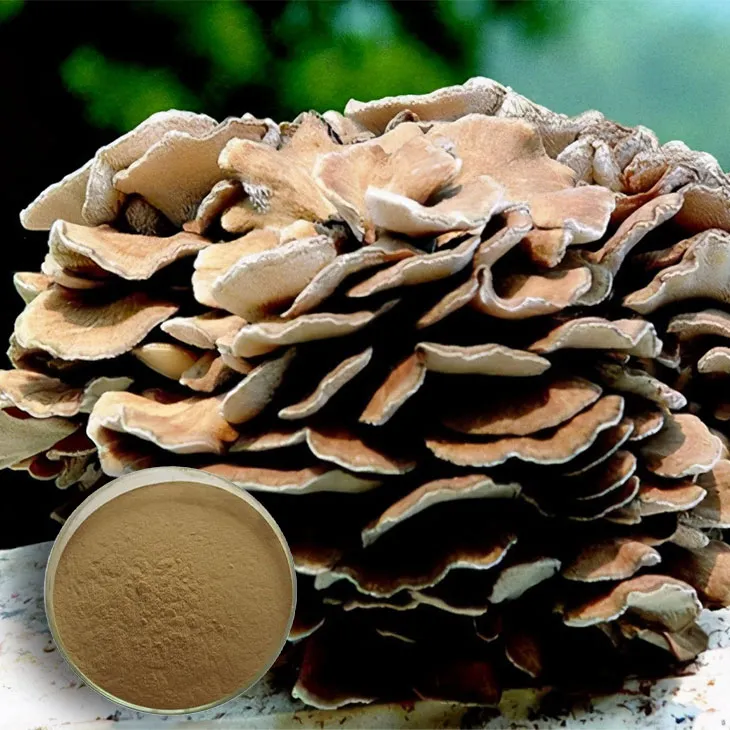- 0086-571-85302990
- sales@greenskybio.com
Expert Tips for Effective Wholesale Purchasing of Maitake Mushroom Extract.
2024-12-11

1. Introduction
The Maitake mushroom, also known as Grifola frondosa, has been recognized for its potential health benefits. Maitake extract, which is derived from this mushroom, is in high demand in various industries, including the health and wellness, food, and pharmaceutical sectors. Wholesale purchasing of Maitake extract requires careful consideration to ensure quality, cost - effectiveness, and a reliable supply. This article will provide expert tips to guide buyers through this complex process.

2. Quality Assessment
2.1. Active Ingredient Content
One of the most crucial aspects of assessing the quality of Maitake extract is determining the content of its active ingredients. Beta - glucans are among the key components in Maitake extract known for their potential immune - boosting and health - promoting properties. When evaluating different products, look for extracts with a high beta - glucan content. This information is usually provided on the product label or can be obtained from the supplier. However, be cautious of false claims. Some less - scrupulous suppliers may exaggerate the active ingredient levels. It is advisable to request independent laboratory test reports to verify the accuracy of the stated content.
2.2. Purity and Contaminants
The purity of Maitake extract is another vital factor. Pure Maitake extract should be free from contaminants such as heavy metals (e.g., lead, mercury, cadmium), pesticides, and microbial contaminants (e.g., bacteria, fungi, and their toxins). Suppliers should be able to provide certificates of analysis indicating that their products meet strict purity standards. For example, in the food and pharmaceutical industries, there are regulatory limits for contaminants. Make sure the Maitake extract you are purchasing complies with these relevant industry standards. Conducting random sampling and sending samples to a reputable laboratory for testing can also be a good practice to ensure the purity of the purchased extract.
2.3. Extraction Method
The method used to extract the Maitake mushroom can significantly impact the quality of the final extract. There are several extraction methods available, including hot - water extraction, alcohol extraction, and supercritical fluid extraction. Each method has its own advantages and disadvantages. Hot - water extraction is a traditional method that is relatively simple and cost - effective. It can preserve many of the water - soluble components of the Maitake mushroom. However, it may not be as effective in extracting certain lipophilic compounds. Alcohol extraction, on the other hand, can extract a wider range of compounds, including some that are not soluble in water. But it requires careful handling due to the flammability of alcohol. Supercritical fluid extraction is a more advanced method that can produce a highly pure and concentrated extract. However, it is also more expensive. When evaluating Maitake extract products, inquire about the extraction method used and consider how it may affect the quality and suitability for your intended use.

3. Supplier Selection
3.1. Reputation and Experience
Choosing a supplier with a good reputation and extensive experience in the production and supply of Maitake extract is essential. Look for suppliers who have been in the business for a significant period. A long - standing supplier is more likely to have established reliable production processes and quality control measures. Check online reviews, testimonials, and industry ratings to gauge the supplier's reputation. You can also ask for references from other customers who have purchased Maitake extract from the supplier. Additionally, suppliers with experience in exporting to different regions may have a better understanding of international quality standards and regulatory requirements, which can be beneficial if you are involved in international wholesale purchasing.
3.2. Certification and Compliance
Ensure that the supplier has the necessary certifications and complies with relevant regulations. In the case of Maitake extract for the food and pharmaceutical industries, suppliers should hold certifications such as Good Manufacturing Practice (GMP), Hazard Analysis and Critical Control Points (HACCP), and organic certifications if applicable. These certifications indicate that the supplier follows strict production and quality control procedures. For example, GMP - certified suppliers are required to maintain clean and hygienic production facilities, train their staff properly, and keep detailed records of the production process. Suppliers should also be compliant with local and international regulations regarding the sale and distribution of Maitake extract. This includes regulations related to product labeling, safety, and environmental protection.
3.3. Capacity and Scalability
Consider the supplier's production capacity and scalability. If you are planning to make large - volume wholesale purchases, the supplier should be able to meet your demand without sacrificing quality. A supplier with a large - scale production facility and a stable supply chain is more likely to be able to handle your orders consistently. Additionally, inquire about the supplier's ability to scale up production in the future if your business grows. This can be important for long - term business relationships. You don't want to be in a situation where your supplier is unable to keep up with your increasing demand, causing disruptions to your own business operations.

4. Cost - Effectiveness
4.1. Price Comparison
When it comes to wholesale purchasing of Maitake extract, price is an important factor. However, it should not be the sole determinant of your decision. Conduct a comprehensive price comparison among different suppliers. Be aware that the cheapest option may not always be the best in terms of quality. Some suppliers may offer lower prices but compromise on quality by using inferior raw materials or less - stringent production processes. Look for a balance between price and quality. Consider calculating the cost per unit of active ingredient (e.g., cost per gram of beta - glucan) to make a more accurate comparison. This way, you can ensure that you are getting good value for your money.
4.2. Bulk Discounts and Incentives
Many suppliers offer bulk discounts and other incentives for large - volume purchases. Inquire about these opportunities when negotiating with suppliers. For example, a supplier may offer a percentage discount on orders above a certain quantity. Some suppliers may also provide additional incentives such as free samples of related products, extended payment terms, or assistance with logistics. Take advantage of these offers to reduce your overall cost. However, make sure that the terms and conditions associated with these discounts and incentives are clear and favorable to your business. For instance, don't sacrifice quality control requirements just to get a larger discount.
4.3. Hidden Costs
Be aware of hidden costs that may not be immediately apparent. These can include shipping costs, customs duties (if applicable for international purchases), and storage costs. Shipping costs can vary significantly depending on the distance, shipping method, and the quantity of the Maitake extract being shipped. Customs duties can add a significant amount to the total cost, especially for imports. Storage costs should also be considered, especially if you need to store the purchased extract for a long period before use. When comparing prices among different suppliers, ask for a detailed breakdown of all costs involved to ensure that you are making an accurate cost - effectiveness analysis.
5. Logistics and Shipping
5.1. Packaging
The packaging of Maitake extract is crucial for its protection during shipping and storage. Look for suppliers who use high - quality, durable packaging materials. The packaging should be able to prevent moisture, light, and air from affecting the quality of the extract. For example, Maitake extract is sensitive to moisture, so packaging should be moisture - proof. Additionally, proper packaging can also prevent physical damage during transportation. Suppliers should also label the packaging clearly, including information such as the product name, batch number, active ingredient content, and expiration date. Clear labeling is important for inventory management and compliance with regulatory requirements.
5.2. Shipping Methods
Choose the appropriate shipping method based on your needs and the nature of the Maitake extract. If the extract is perishable or sensitive to temperature changes, consider using a shipping method that offers temperature - controlled environments, such as refrigerated shipping. For non - perishable extracts, standard shipping methods may be sufficient. However, consider the transit time as well. Longer transit times may increase the risk of damage or quality degradation. Discuss with the supplier and the shipping company to find the most suitable shipping method. Some suppliers may have their own preferred shipping partners or may offer in - house shipping services, which can be more convenient and may offer better cost - effectiveness.
5.3. Documentation
Ensure that all the necessary documentation is in order for shipping. This includes commercial invoices, packing lists, certificates of origin, and any required certificates of analysis or quality control documents. For international shipments, proper documentation is crucial for customs clearance. Missing or incorrect documentation can lead to delays, additional costs, or even rejection of the shipment. Work with the supplier to ensure that all the required documents are prepared accurately and in a timely manner. You may also want to keep copies of all the documents for your records.
6. Conclusion
Effective wholesale purchasing of Maitake Mushroom Extract requires a comprehensive approach. By carefully assessing quality, selecting the right supplier, considering cost - effectiveness, and managing logistics and shipping, buyers can ensure successful procurement. The tips provided in this article can serve as a guide for businesses and individuals involved in the wholesale purchase of Maitake extract, helping them make informed decisions and achieve their goals in this competitive market.
FAQ:
Q1: How can one assess the quality of Maitake Mushroom Extract in wholesale purchases?
When assessing the quality of Maitake Mushroom Extract for wholesale, several factors should be considered. Firstly, look at the extraction method. High - quality extracts are often obtained through advanced and pure extraction techniques, such as supercritical fluid extraction, which can preserve more of the active components. Secondly, check the purity of the extract. This can be determined by analyzing the percentage of active ingredients like polysaccharides and beta - glucans. A higher percentage usually indicates better quality. Also, examine the appearance. A pure Maitake extract should be free from impurities, with a consistent color and texture. Third - party laboratory testing reports can be very helpful in verifying these quality aspects.
Q2: What are the key factors to consider when selecting a Maitake mushroom extract supplier?
When choosing a supplier for Maitake mushroom extract, reputation is crucial. Look for suppliers with a long - standing positive reputation in the industry. This can be gauged through customer reviews and industry rankings. Secondly, consider their production capacity. A reliable supplier should be able to meet your wholesale quantity requirements without sacrificing quality. Quality control measures are also vital. Suppliers that have strict quality control processes in place, from raw material sourcing to final product packaging, are more likely to provide consistent, high - quality extracts. Additionally, the supplier's price competitiveness and their ability to offer after - sales support should be taken into account.
Q3: How can one ensure cost - effectiveness in wholesale purchasing of Maitake mushroom extract?
To ensure cost - effectiveness in wholesale purchases of Maitake mushroom extract, it's essential to compare prices from different suppliers. However, don't base your decision solely on price. Consider the quality - price ratio. A slightly higher - priced product may be a better deal if it offers significantly higher quality. Buying in larger quantities can often lead to cost savings per unit, but make sure you have the storage capacity and a clear sales plan to avoid overstocking. Another strategy is to look for suppliers who offer discounts for long - term contracts or bulk purchases. Also, consider the shipping and handling costs, as these can add significantly to the overall cost.
Q4: Are there any regulatory requirements to be aware of when wholesaling Maitake mushroom extract?
Yes, there are regulatory requirements to consider when wholesaling Maitake mushroom extract. In many countries, dietary supplements, which Maitake extract often falls under, are regulated. Suppliers should comply with Good Manufacturing Practice (GMP) regulations. This includes aspects such as proper labeling, which should clearly state the ingredients, dosage instructions, and any potential allergens. Additionally, there may be restrictions on the claims that can be made about the product's health benefits. Import and export regulations may also apply if the product is being sourced from or sold to international markets, such as customs requirements and documentation for the shipment of dietary supplements.
Q5: How can one verify the authenticity of Maitake mushroom extract from a supplier?
To verify the authenticity of Maitake mushroom extract from a supplier, one can start by asking for detailed documentation about the source of the mushrooms. This should include information about the cultivation methods, such as whether they are organically grown. Requesting certificates of analysis from independent laboratories can also help confirm the authenticity of the extract. These certificates should show the presence and quantity of key active ingredients specific to Maitake mushrooms. Another way is to sample the product. A genuine Maitake extract should have a characteristic taste and smell. If possible, visit the supplier's facilities to observe their production processes firsthand and ensure that they are using genuine Maitake mushrooms as the raw material.
Related literature
- Quality Control and Standardization of Maitake Mushroom Extracts"
- "Supplier Selection Strategies for Nutraceutical Ingredients: The Case of Maitake Mushroom Extract"
- "Cost - effectiveness Analysis in the Wholesale Purchase of Medicinal Mushroom Extracts"
- ▶ Hesperidin
- ▶ Citrus Bioflavonoids
- ▶ Plant Extract
- ▶ lycopene
- ▶ Diosmin
- ▶ Grape seed extract
- ▶ Sea buckthorn Juice Powder
- ▶ Fruit Juice Powder
- ▶ Hops Extract
- ▶ Artichoke Extract
- ▶ Mushroom extract
- ▶ Astaxanthin
- ▶ Green Tea Extract
- ▶ Curcumin
- ▶ Horse Chestnut Extract
- ▶ Other Product
- ▶ Boswellia Serrata Extract
- ▶ Resveratrol
- ▶ Marigold Extract
- ▶ Grape Leaf Extract
- ▶ New Product
- ▶ Aminolevulinic acid
- ▶ Cranberry Extract
- ▶ Red Yeast Rice
- ▶ Red Wine Extract
-
Purple Sweet Potato Extract
2024-12-11
-
Fenugreek Extract Powder
2024-12-11
-
Moringa powder
2024-12-11
-
Europen Bilberry Extract
2024-12-11
-
Green Tea Extract
2024-12-11
-
Angelica sinensis extract
2024-12-11
-
Medicinal Marshmallow Extract
2024-12-11
-
Beetroot Powder
2024-12-11
-
Black Garlic Extract
2024-12-11
-
Mango flavored powder
2024-12-11





















